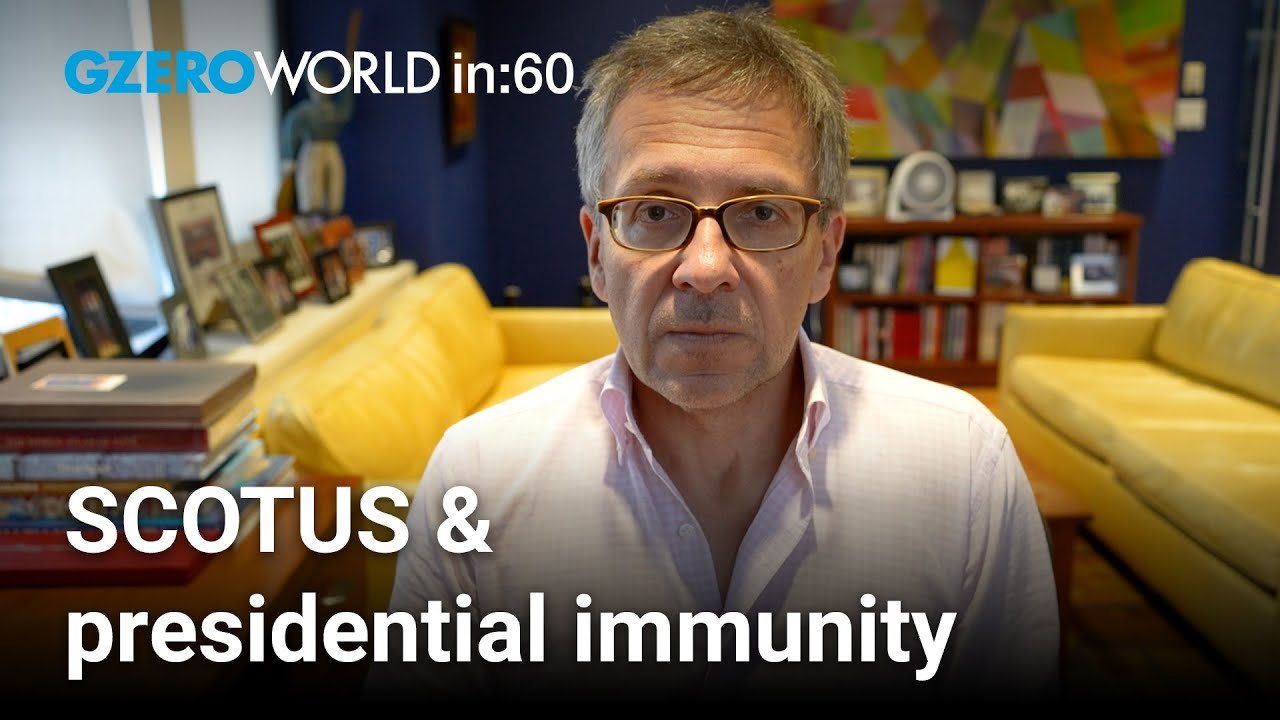Ian Bremmer shares his insights on global politics this week on World In :60.
What does the Supreme Court's immunity decision mean for Trump and the future of presidential power?
Well, for Trump, the first thing it means is that you're not going to be hearing about on the case of his involvement in January 6th. All of that gets punted until after the election earliest, assuming Biden wins and more likely these days, Trump. The case is kind of a dead letter. More broadly for presidential power. We're talking about immunity for all official acts that are engaged in during the course of a person's presidency. Now, in dissent, Justice Sotomayor, who's pretty far left on the court, has said that this doesn't prevent a president from engaging in treasonous acts and makes the president a king. Most jurists don't accept that, but it certainly does lead to huge questions about what is and what is not an official act. And of course, presidents would be inclined to argue that very broadly to be able to avoid the potential at any cases against them. So this is a pretty significant, not necessary momentous, but certainly very significant decision by the court.
With the far-right surging in the French elections, what would a caretaker government in France mean for Europe?
Well, it is more likely that we see a caretaker government than we see a far-right majority. And the efforts by President Macron and the left to ensure that they are not running against each other in the second round, triangular three-person elections make it more likely that you have a hung parliament. Then you have the far right in a cohabitation of this very unusual situation where the prime minister is opposition to the president. But what's going to happen is that you have a very, very weak French government and that almost nothing can pass in the next 12 months until another election would occur. It certainly makes Le Pen stronger. It makes it more likely that the far right is eventually able to defeat a Macron successor from the center in 2027.
And it also makes it more likely that the French budget is out of whack with the EU. They're not able to pass anything that looks like a balanced budget, that more parliamentary approvals for things like, additional support for Ukraine or training troops on the ground, would have a hard time getting through the French parliament if it requires such a vote. So it's a real challenge for the EU. It's a challenge for France.
Does the West have any concerns with Modi's upcoming visit to Russia?
Not really. The West relationship with Prime Minister Modi is very strong. Modi is increasingly decoupling the defense relationship between India and Russia. They buy a lot from Russia. No Indian technology goes to Russia the way that it does from China, for example. So you don't have that dual use problem. And India buys an awful lot of oil from Russia, at a discount. But that is in line with American and the West's policies, because they don't want a global recession. Modi and Putin, in principle, are supposed to visit each other every year. That hasn't happened. And so this is sort of getting that relationship in that regard on track. But I think there's not a lot strategically that the West is worried about near term here.
More For You
Indian Prime Minister Narendra Modi and Canadian Prime Minister Mark Carney struck a series of deals during a meeting in New Delhi on Monday, including a 10-year nuclear energy deal under which Canada will provide India with uranium.
Most Popular
The US and Israel have launched a series of strikes against Iran at a moment when the Islamic Regime is at its weakest. Ian Bremmer spoke with Iran expert Karim Sadjadpour in Munich earlier this month to understand the choices the regime and population are facing.
With US forces building up in the Middle East, Trump is betting military pressure will force Iran to bend. Will this turn into a full-scale conflict?
Are we still talking. #PUPPETREGIME
